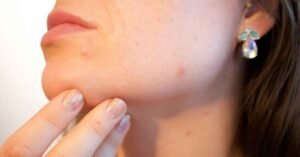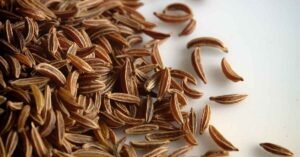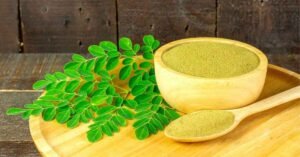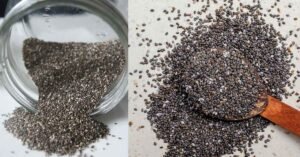
Probiotic tea is a drink that not only tastes great but is also good for your health. It combines the benefits of tea with the power of probiotics, which are good bacteria that help keep your gut healthy. While kombucha is a well-known probiotic tea, herbal probiotic teas are becoming more popular because they offer a caffeine-free way to enjoy the benefits of probiotics. In this post, we’ll take a closer look at herbal probiotic teas, why they’re good for you, and how you can make your own at home.
Probiotic Tea?
Probiotic tea is made by fermenting tea with probiotics. Probiotics are live bacteria that are good for your digestive system. They help balance the bacteria in your gut, which is important for digestion, immunity, and overall health. When you drink it you get the benefits of both the tea and the probiotics, making it a healthy and refreshing drink.
Why Choose Herbal Probiotic Tea?

Herbal probiotic teas are a great choice for people who want a caffeine-free option or who want to enjoy the benefits of herbs along with probiotics. Here are some reasons why herbal probiotic teas are worth trying:
- Caffeine-Free: Herbal probiotic teas don’t contain caffeine, which makes them perfect for drinking in the evening or for people who are sensitive to caffeine.
- Health Benefits: Different herbs used in these teas offer various health benefit:
- Chamomile: Chamomile is known for its calming effects. It can help reduce stress, anxiety, and improve sleep. When combined with probiotics, it also supports digestion.
- Peppermint: Peppermint is great for easing digestive issues like bloating and gas. Probiotics in the tea help maintain a healthy gut.
- Ginger: Ginger is well-known for reducing nausea and improving digestion. When fermented with probiotics, it becomes even more effective for gut health.
- Hibiscus: Hibiscus is rich in antioxidants and helps lower blood pressure. As a probiotic tea, it also supports a healthy gut.
- Digestive Support: Herbal probiotic teas introduce good bacteria into your digestive system, helping to keep your gut balanced and healthy. The herbs in these teas also support digestion, making them gentle yet effective for common digestive issues like indigestion and gas.
- Relaxation and Stress Relief: Many herbal teas are known for their calming effects. When combined with probiotics, they not only help you relax but also support your mental well-being by improving gut health, which is linked to mood and stress levels.
- Natural Detoxification: Some herbs, like dandelion and hibiscus, help detoxify the body. When these herbs are fermented with probiotics, the tea helps cleanse your system while also replenishing your gut with healthy bacteria.
Probiotic Tea and Skin Health
One of the lesser-known benefits of probiotic tea is its positive impact on skin health. Here’s how it works:
- Balances Gut Health for Clearer Skin: Your skin’s health is closely linked to your gut. An imbalance in gut bacteria can lead to skin problems like acne, eczema, and rosacea. Drinking this tea helps balance the bacteria in your gut, which can lead to clearer, healthier skin.
- Reduces Inflammation: Probiotics are known to reduce inflammation, which is a major cause of skin issues. By calming inflammation in the body, it can help reduce redness, swelling, and irritation in the skin.
- Supports Skin Hydration: A healthy gut can improve the absorption of nutrients and water, which in turn keeps your skin hydrated and glowing. Herbal probiotic teas, especially those with hydrating herbs like chamomile and hibiscus, can help maintain your skin’s moisture levels.
- Detoxifies the Skin: Herbs like dandelion and hibiscus in probiotic teas help detoxify the body by supporting liver function. This detoxification process removes toxins that can cause skin issues, leading to a clearer complexion.
- Boosts Immune System: A strong immune system can fight off the bacteria and inflammation that cause skin problems. Probiotic teas help boost your immune system by supporting your gut health, which in turn helps your skin stay healthy and clear.
Types of Herbal Probiotic Tea
Here are some popular types of herbal probiotic teas you might want to try:
- Chamomile Probiotic Tea: This tea is calming and helps with sleep. It’s perfect for drinking before bed.
- Peppermint Probiotic Tea: A great choice for digestive health, this tea helps with bloating and keeps your gut healthy.
- Ginger Probiotic Tea: This tea is warming and soothes the stomach. It’s ideal for improving digestion and reducing nausea.
- Hibiscus Probiotic Tea: It is refreshing and supports heart health. It’s also rich in antioxidants.
How to Make at Home

You can easily make your own herbal probiotic tea at home. Here’s a simple guide:
Ingredients:
- 8 cups of water
- 4 tablespoons of dried herbs (such as chamomile, peppermint, ginger, or hibiscus)
- 1/2 cup of sugar or honey (for fermentation)
- 1 probiotic capsule or 1 cup of unflavored kombucha (as a starter culture)
Instructions:
- Boil Water: Start by boiling the water. Once it’s boiling, take it off the heat and add your chosen herbs. Let the herbs steep for about 10-20 minutes.
- Sweeten the Tea: Add the sugar or honey to the tea and stir until it’s fully dissolved. This will feed the probiotics during fermentation.
- Add Probiotics: Once the tea has cooled, add the probiotics (either from a capsule or the kombucha). Stir gently to mix.
- Fermentation: Pour the tea into a glass jar, cover it with a cloth, and let it ferment at room temperature for 3-5 days. The longer it ferments, the stronger the flavor will be.
- Strain and Enjoy: After fermentation, strain the tea to remove the herbs, then pour it into bottles for storage. You can drink it right away or refrigerate it to enhance the flavor.
Possible Side Effects
Herbal probiotic teas are generally safe, but there are a few things to keep in mind:
- Digestive Changes: Some people may experience gas, bloating, or diarrhea when they first start drinking probiotic tea. These symptoms usually go away as your body adjusts.
- Allergies: If you’re allergic to any of the herbs or probiotic strains, avoid drinking it.
- Medication Interactions: If you’re taking medication, especially for your immune system, check with your doctor before adding it to your diet.

Conclusion
Herbal probiotic teas offer a tasty and healthy way to enjoy the benefits of probiotics. They combine the soothing properties of herbs with the gut-boosting effects of probiotics, making them a great choice for digestive health, relaxation, and overall wellness.
Whether you choose chamomile, peppermint, ginger, or hibiscus, these teas can be a wonderful addition to your daily routine. Making your own herbal probiotic tea at home is easy and allows you to create blends that suit your taste and health needs.
By adding it to your life, you can enjoy a drink that not only tastes good but also helps keep your body and mind healthy.
References
- Hill, C., Guarner, F., Reid, G., Gibson, G. R., Merenstein, D. J., Pot, B., … & Sanders, M. E. (2014). The International Scientific Association for Probiotics and Prebiotics consensus statement on the scope and appropriate use of the term probiotic. Nature Reviews Gastroenterology & Hepatology, 11(8), 506-514.
- Plaza-Diaz, J., Ruiz-Ojeda, F. J., Vilchez-Padial, L. M., & Gil, A. (2017).
FAQ
What are the benefits of drinking probiotic tea?
It may improve digestion, boost the immune system, enhance nutrient absorption, and support a healthy gut microbiome.
How often should I drink probiotic tea?
It’s generally safe to drink probiotic tea daily, but the ideal frequency can vary based on individual health needs and the specific tea you choose.
Are there any side effects of probiotic tea?
Some people may experience digestive discomfort, such as bloating or gas, when they first start drinking it. It’s best to start with a small amount and gradually increase your intake.
Can probiotic tea help with weight loss?
It may support weight management by improving digestion and metabolism, but it should be combined with a balanced diet and exercise for best results.
How does probiotic tea differ from regular tea?
Unlike regular tea, probiotic tea contains live beneficial bacteria that contribute to gut health, whereas regular tea does not have these live cultures.
Is probiotic tea suitable for everyone?
It is generally safe for most people, but individuals with compromised immune systems or certain health conditions should consult their healthcare provider before consuming it.
Where can I buy probiotic tea?
It can be purchased at health food stores, specialty tea shops, and online retailers. Look for reputable brands that provide clear information about their probiotic content.
What is the difference between kombucha and herbal probiotic tea?
Kombucha is a type of probiotic tea made from black or green tea that’s fermented with a symbiotic culture of bacteria and yeast (SCOBY). It contains caffeine and can be slightly effervescent. Herbal probiotic tea, on the other hand, is made from caffeine-free herbs and is fermented with probiotics. Both offer gut health benefits, but herbal probiotic tea is a better choice if you want to avoid caffeine.
Does probiotic tea contain caffeine?
It depends on the type of tea. Kombucha, made from black or green tea, does contain caffeine. However, herbal probiotic teas are typically caffeine-free, making them suitable for those who want to avoid caffeine.
How do I choose a high-quality probiotic tea?
Look for probiotic teas with live and active cultures, clear labeling of probiotic strains and their quantities, and minimal added sugars or artificial ingredients.
Can I drink probiotic tea if I’m pregnant or breastfeeding?
While probiotic tea is generally considered safe, it’s a good idea to consult your healthcare provider before adding it to your diet during pregnancy or breastfeeding.
How does probiotic tea compare to probiotic supplements?
Probiotic tea offers the benefit of hydration and antioxidants in addition to probiotics. However, supplements often contain higher concentrations of specific probiotic strains.
Can probiotic tea help with lactose intolerance?
It may help improve digestion and support gut health, which can be beneficial for those with lactose intolerance, but it’s not a substitute for managing lactose intake.
How long does it take to see the benefits of drinking probiotic tea?
Benefits can vary from person to person, but some people may start to notice improvements in digestion and overall well-being within a few weeks of regular consumption.
Can I drink probiotic tea if I’m on antibiotics?
It can be beneficial during and after antibiotic use, as it may help replenish beneficial bacteria. However, it’s best to consult your healthcare provider for personalized advice.














